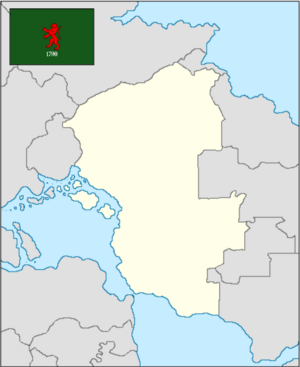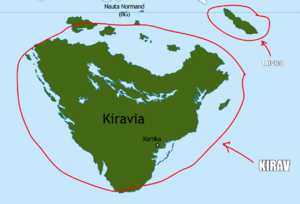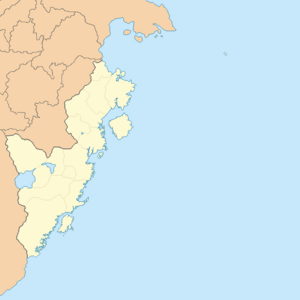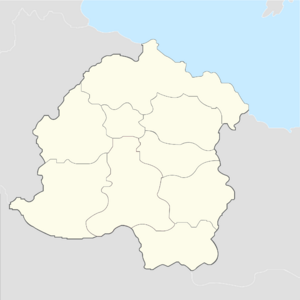World Guide
The World Guide is a brief (one or two paragraphs), high-level description of your nation so that people can quickly get a sense of what it is all about. Focus on the things that make your nation unique.
Crona
South Crona

Confederated Provinces of Arcerion
Located in South Crona, the Confederated provinces of Arcerion are a parliamentary democracy with strong diplomatic ties to other members of its alliance, the Cronan Security and Trade Union. Founded by the Kingdom of Carna in the 1700s, Arcerion emerged as a settler state and a major agrarian and rail hub on the continent during the 1800s, of which much of that period was spent fighting the Bush Wars. As it entered into the modern era, it participated in both Great Wars, culminating with Operation Lightfoot, the invasion of The Cape during the 2nd Great War. Arcerion is a major exporter of staple foods and agricultural equipment, an homage to its deep-running cultural heritage as an agrarian democracy. It regularly participates in peacekeeping initiatives with other nations such as Paulastra, and regularly works with Stenza on military exercises in the Songun and Polynesian Seas. Arcerion is also a major diplomatic hub, with it being part of the short-lived South Crona Congress and participating as a member of the League of Nation's Security Council, assisting in multiple humanitarian initiatives. A keystone part of Arco foreign policy is the counter-piracy and counter-terror operations around the Malentine Sea to ensure freedom of maritime navigation and protecting commercial freight passing through the key Warrington Straits waterway. Progressive social policies and common-sense economic legislation make Arcerion one of the most stable democracies in Crona, regularly receiving international acclaim for its civil rights and safe cities.
The Federacy of the Cape
The Federacy of the Cape is an constitutional republic located on the southern point of Crona. Formed through a gruesome War of Independence against Kiravia and Cartadania, the Cape today is a multiracial and multilingual society with an Occidental, liberal, and modernist culture. It is one of the world's most vital transshipment hubs, and its Songun Straits are some of the busiest waterways in the world. Shaped roughly like a trident, the Cape is home to over 127 million people.
It is home to a variety of LONESCO world heritage sites and is heir to the rich history and culture of the indigenous Cahok peoples and the legacy of Kiravian and Cartadanian colonization. Besides from its cultural sites and bustling cities, the Cape is also known for its vast savannah, imposing mountain ranges, striking escarpments, and white beaches. The Cape is perhaps the favourite destination for Kiravian and Fanerian travellers, seeking a respite from the cold in a nation sharing cultural and economic ties.
While instances of crime and racial or sexual discrimination are few and far between, the prospective traveller should exercise caution nevertheless. The Cape is governed as an authoritarian democracy and a one-party state with limited judicial redress for certain crimes. One should refrain from insulting both republican institutions and the nation's founder, Melvyn Kalma, and his personality cult.
Kiroborea

Kiravian Federacy
Centred on an island continent between the Arctic and the Odoneru Ocean, the Kiravian Federacy is a civilisation-state known for its bizarre autochthonous culture, pervasive alcoholism, and miserable weather.
Long oriented toward the sea, Kiravians have engaged extensively in seaborne commerce, exploration, and colonisation, with the nation emerging as a major mercantile and colonial power during the Age of the Sail. Kiravian settlers populated much of what is now the Cape and Paulastra, as well as various other territories such as Æonara and Suderavia that remain part of the Kiravian realm today. A relatively early entrant to industrialism, Kiravia today has the second-largest national economy in terms of nominal GDP, underpinned by strong export-oriented industries such as electrical equipment, alcoholic beverages, and pharmaceuticals, as well as maritime trade and a burgeoning service sector. However, development and medium-term economic prospectus is uneven across the nation, with wide disparities in living standards and infrastructural quality between coastal and inland areas and metropolitan and non-metropolitan areas, and among the country's various cultural and geographic regions.
Formally a federative crowned republic under the sovereignty of the Marble Emperor, the Kiravian political system is generally regarded as democratic, though at the federal level it has been subject to criticism from Occidental liberals for counter-majoritarian elements of its constitution, the strength of its executive, and a perceived democratic deficit.
Travellers may find it difficult to manage outside of relatively cosmopolitan port cities such as Valēka, Saar-Silverda, Béyasar, Sirana, Pontevedra, and Sar-i-Pául. Comprehension of major international languages such as Latin and Ænglish outside of these urban centres ranges from unreliable to nonexistent, though speakers of Gaelic are reasonably common in many parts of the country. The challenges posed by a different script, different timekeeping system, different units of measure, and an apparently wilful refusal to adopt many informational signage conventions and international technical standards are compounded by alien social customs and a minefield of cultural taboos, the particularities of which can vary widely from locality to locality. The Office of Visitor Services strongly advises foreigners looking to experience the "real Kirav" to invest in an accredited guide or interpreter and a comprehensive guidebook.
Levantia
Northern Levantia
The Republic of the Fhainn
Faneria is a country in northern Levantia with coastline on the Nordska, Kilikas, and Vandarch seas. Its core region, the Ninerivers, sits along the Vandarch Basin. It posesses several minor overseas territories as well as Sorhaithe, which is a province not contiguous with metropolitan Faneria. It is dominated by the Fhainnin Gaelic culture group, with notable Coacivian, Aenglo, and foreign Gaelic minorities. Its government has four branches and a tricameral legislature, and is considered a unitary constitutional democracy with good civil and legal rights but a somewhat authoritarian political system dominated by the Republican Party with legal but weak opposition parties.
Faneria originated from a patchwork of shifting petty states to become a kingdom in the 14th Century A.D. with an aristocratic, feudal elective monarchy eventually being eroded into a functionally absolute state and, by the 19th century, a constitutional one with a weak Senate and defanged petty nobility. Faneria was an aggressively expansive great power in the late 18th and throughout the 19th Centuries. At the close of the 19th Century, it was decisively defeated by the Commonwealth of Fiannria, destroying the monarchy's prestige and ultimately driving the nation into civil war in 1906 and emerging as a radical revolutionary republic under Callac Cananach and his version of republicanism. It later attempted and failed to create a pan-gaelic union in the 1930s and would eventually settle as a high-ranking secondary power with close ties to the Coscivian world and work to repair its relations with much of the outside Gaelic world.
The Fhainnin economy features strong native cultural goods, electronics, and especially chemicals sectors, and produces high-quality medical equipment. It also sees tourism for winter and water sports and manufactures wood products and crude lumber, seafood, and industrial precursors and materials. Its financial sector is popular for international travel insurance agencies, low-risk investment plans, and for banking clients not welcome in Sarpedonian or Levantine Union institutions.
Fiannria
Southern Levantia
Grand Thalassocratic Republican Principality of Burgundie and her Commonwealth

Burgundie is a vast global nation but its "core" is the Burgoignesc Metropole on the northwestern coast of the Sea of Istroya, known by landlubbers as the southeastern coast of Levantia, Burgundie is known for its Cisterian culture (think Protestant work ethic, but Catholic), and being progressive paternalist globalists which they express through the following general societal tenents:
- a strong support for supranational agencies like the League of Nations and global improvement institutions;
- a strong navy and maritime gendarmerie to maintain the concepts of free trade and Freedom of the seas;
- seeking international trade and military agreements that maintain market stability; and
- establishing new, economically healthy markets for goods carried by the Merchant Marine of Burgundie.
Most Serene Grand Duchy Yonderre

Yonderre is a middle power with a population of 100 million located in central Levantia boasting a strong economy, having the world's second-largest economy by GDP per capita. A highly developed country, Yonderians enjoy a high standard of living and the country offers social security and a universal health care system, environmental protections, and a tuition-free university education. Yonderre ranks highly in most metrics of national performance, including education, health care, protection of civil liberties, democratic governance and gender equality. Yonderian cuisine is famous worldwide, particularly for its pastries.
Yonderians speak Burgoignesc and/or East Gothic and are ethnically and culturally considered to be a mix of the two since the 19th century, referred to simply as Yonderians (eg Yonderian people, Yonderian culture). Yonderre has a highly romantic relationship with its past as a nation of noble pagans conquered by knights in shining armour. Yonderre also has a highly active movie industry centred in Gabion, Vandarcôte that acts as an Ixnayan Hollywood. Military technology represents a notable Yonderian export, eg Brochet-2 and YOLO.
Yonderre is a federal parliamentary elective constitutional monarchy of nine Counties making up the Grand Duchy and has semi-universal suffrage: In federal elections, all citizens over 18 years of age who live in the realm and who have not been declared incapable of managing their own affairs may vote for their County election. For national elections, a prospective voter must have earned the right to vote for Parliament, known as the Grand Vote. Yonderre has more than 40 million Grand Voters, representing around 58% of all Yonderian citizens over 18 years of age.
Ultmar
Alshar
Democratic Republic of Corumm
Corumm is a one party, evil, totalitarian empire with one overriding goal: keeping its grip over its own population. It achieves this by fake populism, appeals to jingoism, fostering xenophobia and iron fisted security services. Abroad it seeks to increase its clout and extend its tentacles in seemingly benign ways such as rampant mercantilism, active participation in the League of Nations, attempts to weaponise diaspora communities (results may vary) and engaging in corruption with local elites. Corumm is the only nation to ever use nuclear weapons on a civilian target without provocation.
Vallos
The Union of Takatta Loa
Based in the south of the tropical subcontinent of Vallos, west of Sarpedon, the Union of Takatta Loa is a loose federation of nine client nations widely known in the rest of the world for its diverse cultural complex and indigenous organized religion. The Loa people once formed a vast empire stretching almost all of Vallos and the Kindreds, but after the violent collapse of the imperial domain, the land that would become Takatta Loa would fall into chaos, with much if the northern territory being seized by Cartadania and the southwest being consolidated into modern day Takatta Loa.
Takatta Loa relies heavily on its natural resources, cheap manufacturing capacity and widespread shipping companies to sustain itself. The Union is the leading supplier of a great deal of the world's spices such as cardamom, nutmeg and Copium, although almost all of its other agriculture output remains domestic due to the relatively restrictive religious taboos in regards to pesticides. In addition, industrialism is becoming more and more prominent in Takatta Loa, with the nation producing increasingly more automobiles, electronics and trams, fueling economic growth. In addition, the state run companies that regulate entire industries in Takatta Loa are mandated on threat of death to focus on maximizing profit, which is distributed throughout the population as all citizens are employed by the state, whilst minimizing any and all severe changes to the traditional Loa way of life. Despite this, Takatta Loa is still a poor and developing nation, with certain regions relying entirely on subsistence agriculture.
Takatta Loa is also one of of most profoundly authoritarian nations in the world, though the power is diffused through a vast, byzantine bureaucracy and oligarchy rather then a single ruler or dynasty. All aspects of life are regulated and even the most basic activities such as leaving one's village requires a permit. In addition, the religious institutions of the Kapuhenasa maintain an iron tight grip on the population, combining theocratic zeal with ethno-nationalism and xenophobia specifically to enculturate an extremely caustic and isolationist attitude towards the Occident.
Currently, it is impossible to visit the Union of Takatta Loa as that requires a permit, which can only be acquired by Loa citizens. Furthermore, it is specifically outlawed to not be a Loa or of Loa descent and to not follow the teachings of the Kapuhenasa, locking away the many ancient wonders and customs of Takatta Loa from an outside visitor. However, one can visit the relatively modern and developed capital of Ninao under severe guidance and the watchful eye of the Loa military police.